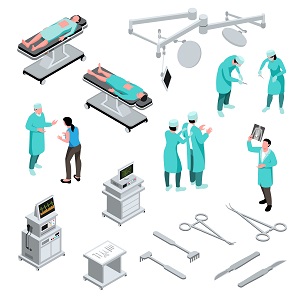The medical X-ray testing machine market is a crucial segment of the healthcare industry, reflecting the ongoing advancements in diagnostic imaging technologies and the increasing need for early disease detection and management. X-ray machines are indispensable tools in modern medicine, providing detailed images of the internal structures of the body to aid in diagnosing a wide range of conditions, from fractures and infections to tumors and other abnormalities.
Over recent years, the market has experienced consistent growth, driven by several key factors. One major factor is the rising prevalence of chronic diseases, such as cardiovascular conditions, cancer, and respiratory disorders, which necessitate regular diagnostic imaging for effective management and treatment. Additionally, the global aging population is contributing to increased demand for diagnostic imaging services, as older individuals are more likely to require medical evaluations and interventions.
Technological advancements have played a significant role in shaping the market dynamics. The transition from traditional analog X-ray machines to digital X-ray systems has revolutionized the field. Digital X-ray machines, including direct radiography (DR) and computed radiography (CR), offer superior image quality, faster processing times, and reduced radiation exposure compared to their analog counterparts. DR systems, in particular, are gaining popularity due to their high resolution and efficiency, which enhance diagnostic accuracy and patient safety.
The market is segmented into various categories, including product type, portability, application, and end-user. Product types are divided into analog and digital X-ray machines, with digital systems dominating the market due to their advanced features and benefits. Portability is another significant factor, with stationary X-ray machines being used in conventional clinical settings and portable machines increasingly being utilized in emergency situations, remote locations, and bedside imaging.
Get a sample copy of the report to know more https://medicalmarketreport.com/report/global-medical-x-ray-testing-machine-market/#requestForSample
Key Market Segments
Type
Fixed X-Ray
Portable X-Ray
Dental X-Ray
Mobile X-Ray
Application
Medical
Academic
Others
Key Regions
- North America (The US, Canada, Mexico)
- Western Europe (Germany, France, The UK, Spain, Italy, Portugal, Ireland, Austria, Switzerland, Benelux, Nordic, Rest of Western Europe)
- Eastern Europe (Russia, Poland, The Czech Republic, Greece, Rest of Eastern Europe)
- APAC (China, Japan, South Korea, India, Australia & New Zealand, Indonesia, Malaysia, Philippines, Singapore, Thailand, Vietnam, Rest of APAC)
- Latin America (Brazil, Colombia, Chile, Argentina, Costa Rica, Rest of Latin America)
- Middle East & Africa (Algeria, Egypt, Israel, Kuwait, Nigeria, Saudi Arabia, South Africa, Turkey, United Arab Emirates, Rest of MEA)
Key Market Players included in the report:
North Star Imaging
GE Healthcare
Fujifilm Holdings
Siemens Healthcare
Philips Healthcare
Shimadzu Corporation
Toshiba Medical Systems Corporation
Carestream Health
Hitachi Medical Corporation
Hologic
If You Have Any Questions About This Report, Please Reach Out to Us @ https://medicalmarketreport.com/report/global-medical-x-ray-testing-machine-market/#inquiry
Drivers
- Rising Prevalence of Chronic Diseases:
- The increasing incidence of chronic conditions like cardiovascular diseases, cancer, and respiratory disorders drives the demand for diagnostic imaging.
- Regular monitoring and early detection facilitated by X-ray machines are crucial for effective disease management.
- Advancements in Imaging Technology:
- Continuous innovations in X-ray technology, such as digital radiography (DR) and computed radiography (CR), enhance image quality and diagnostic accuracy.
- Technological improvements also reduce radiation exposure, making X-rays safer for patients.
- Growing Aging Population:
- The global increase in the elderly population requires more frequent medical evaluations and imaging.
- Older adults are more susceptible to conditions that necessitate X-ray diagnostics.
- Rising Healthcare Expenditure:
- Increased investment in healthcare infrastructure globally supports the adoption of advanced X-ray systems.
- Governments and private sectors are allocating more funds for upgrading medical equipment.
Trends
- Shift Towards Digital X-ray Systems:
- Digital X-ray machines are becoming more prevalent due to their superior image quality and faster processing.
- Direct radiography (DR) systems are increasingly favored for their efficiency and reduced radiation exposure.
- Growth in Portable X-ray Machines:
- The demand for portable X-ray machines is rising, particularly for emergency settings, remote locations, and bedside imaging.
- Portable systems provide flexibility and accessibility, enhancing patient care in various environments.
- Integration of Artificial Intelligence (AI):
- AI technologies are being integrated into X-ray systems to improve image analysis and diagnostic accuracy.
- AI can assist in automating image interpretation and detecting anomalies with higher precision.
- Increased Focus on Patient Safety:
- There is a growing emphasis on reducing radiation dose while maintaining diagnostic quality.
- Manufacturers are developing X-ray systems with advanced safety features to minimize patient exposure.
Opportunities
- Expanding Healthcare Infrastructure in Emerging Markets:
- The rapid development of healthcare facilities in emerging economies presents opportunities for market expansion.
- Increasing investments in healthcare infrastructure are driving demand for advanced X-ray machines.
- Technological Advancements:
- Opportunities exist to develop and commercialize new imaging technologies and features.
- Innovations in digital imaging, AI, and machine learning offer potential for market growth.
- Increased Adoption of Telemedicine:
- The rise of telemedicine and remote consultations creates opportunities for portable and remote X-ray solutions.
- Integration of X-ray systems with telemedicine platforms can enhance diagnostic capabilities in remote areas.
- Growth in Veterinary X-ray Market:
- The expanding veterinary healthcare sector is creating new opportunities for X-ray machine manufacturers.
- Veterinary X-ray machines are increasingly used for diagnosing conditions in animals.
Restraints
- High Cost of Advanced X-ray Systems:
- The high initial investment required for advanced digital X-ray systems can be a barrier for smaller healthcare facilities.
- Budget constraints may limit the adoption of cutting-edge technologies in some regions.
- Radiation Safety Concerns:
- Despite advancements, radiation exposure remains a concern for both patients and healthcare providers.
- Ensuring compliance with safety regulations and reducing exposure is a continuous challenge.
- Regulatory and Compliance Issues:
- Stringent regulatory requirements and certification processes can impact market entry and development.
- Navigating complex regulatory landscapes can delay product launches and increase costs.
- Maintenance and Operational Costs:
- The ongoing maintenance and operational costs of X-ray machines can be significant.
- Regular servicing and calibration are required to ensure optimal performance and reliability.
Contact Us :
420 Lexington Avenue, Suite 300 New York City, NY 10170,
United States
Phone:+1 718 618 4351 (International),+91 78878 22626 (Asia)
Email: [email protected]



